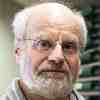Communications of the ACM
Refine your search:
From BLOG@CACM
Communing on Computing
Conferences can renew our professional commitment and inspire thought on problems we face.
From BLOG@CACM
Why Are There So Many Programming Languages?
Most languages differ less in what they make possible, and more in terms of what they make easy.
From BLOG@CACM
Where is the Cradle of the Computer?
The digital computer of today arose in the first half of the 1940s independently in three different countries: Germany, the U.K. and the U.S.
From BLOG@CACM
Turing's Influence on Computer Construction is Overestimated
How great was Turing's influence on early British automatic computers? Opinions differ considerably.
From BLOG@CACM
InnovateFPGA: Wrong Strategy Drives One of the Best FPGA Development Contests into Crisis
In my opinion, the main problem of the InnovateFPGA contest is the lack of a permanent team to lead.
From BLOG@CACM
The Mesm: Ukraine Beats Russia
The Mesm is considered the first stored program digital computer in Continental Europe.
From BLOG@CACM
Anti-Sanctions: New Operating System for Mobile Devices
There comes a time not only of crisis, but also of great opportunities. And here, it is important to take advantage of these new opportunities.
From BLOG@CACM
High-Performance Mobile System-on-Chip Clusters
Simply stating the problem is not enough; it is necessary to look for a quick way out of the situation, relying on available resources.
From BLOG@CACM
Language Imitation Games and the Arrival of Broad and Shallow AI
On the impact of large language models.
From BLOG@CACM
We Are Camille
Who is Camille Noûs, who has contributed to hundreds of papers on Google Scholar?
From BLOG@CACM
How Does One Divide with Napier's Rods?
Napier's multiplication and division rods, deriving from the basic multiplication table, simplify calculations considerably.
From BLOG@CACM
How Does One Multiply with Napier's Rods?
Napier's multiplication and division rods, deriving from the basic multiplication table, simplify calculations considerably.
From BLOG@CACM
The Evolution of Computing Power in Switzerland
Milestones in the history of computing from the Swiss National Supercomputing Center, Lugano.
From BLOG@CACM
New Areas for Application of Self-Organizing Routing
To organize the productive work of multiprocessor chips, it is necessary to establish an efficient distribution of computational processes between computational...
From BLOG@CACM
The Art Of Speedy Systems Conversions
System conversions represent a type of development in which project scope includes all the effort of an initial software release, plus an entirely new set of complexities...
From BLOG@CACM
The World's Most Magnificent Historical Calculating Machines
The design of today's electronic computers is usually not very appealing, in contrast to magnificent mechanical calculating machines from earlier times.
From BLOG@CACM












